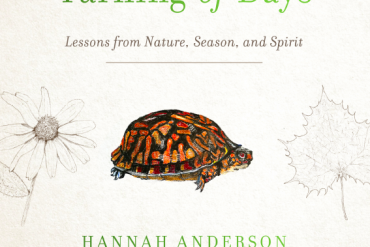With Christmas around the corner it is disturbing to consider the massive slaughter that has been underway. Even more disturbing? Many of us indulge in it unthinkingly. Across the nation homes drag in a carcass for one day of gluttony. The leftovers? They dry up, get boring, and are finally pushed to the garbage.
No, I’m not talking about the mass of turkeys that are consumed from Thanksgiving through Christmas.
I’m talking about…
The Great Christmas Tree Hunt
“Alright kids. Time to load up the minivan. We’re gonna bag us a tree.”
It’s this ritual that actual marks the start of the Advent season, right? You know Advent: it’s when we get all our Christmas shopping done. Well, actually, it’s the start of the Church year.[ref]What!? Now the Church has its own calendar? And its own new year? What’s wrong with January 1? Well, for an alternative take on this season, you could check out Advent Conspiracy[/ref]
So we start the new year with a hunt… for a tree. But why in the world do we call it a hunt? Is it some sick perversion of sport? The ultimate fish in a barrel? Lion in a pen? The trees aren’t going anywhere. And while I do hate the way Norway Pines (Pinus resinosa) prick my fingers (I’m more of a Douglas Fir (Pseudotsuga menziesii) guy), I was the one who assaulted it. I snuck up and tore it to the ground while it was peacfully soaking in the waning rays of winter’s sun.
It never even saw it coming.
To call it a hunt makes light of the actual seriousness of hunting. The lives at stake, and sacrificed.
Which makes me wonder if we’re hunting for something different than a Christmas tree.
The Good ‘Ol Days
Maybe for those good ‘ol days? After all, finding a tree used to at least resemble a hunt. Long before lots packed with trees trucked in and Christmas tree farms, a family (or more likely, the men) would actually traipse through the woods, feel the crunch undertow as they broke the pristine ground, and the rush of adrenaline when, there!, The Family Christmas Tree–like some sign from God.
Some even said if you listened close enough you could hear the tree calling your name.
But they were probably crazy. Trees don’t talk.
Increasingly through the 19th century the insatiable appetite of the American household for the smell of a fresh tree carcass made for huge business in logging Christmas trees. Overharvesting even led President Teddy Roosevelt, founder of the National Parks Service, to try to stop the Christmas tree tradition (forshame!). But, cooler (and more market-minded) heads prevailed and conservation techniques were applied to the Christmas tree harvest.[ref]See some of the National Christmas Tree Association propaganda for a helpful timeline.[/ref]
The Pursuit of Perfection
And that’s how we got the modern day Christmas tree farm in all its glory.[ref]I’m not trying to knock the good folks who run these farms. The actual ecological outcomes of these farms, for land and people, is a whole ‘nother topic we’ll explore later.[/ref] The adventurous, who drive past the the tree lots and out to fields turned manufactured forests, are treated with a glorious uniformity befitting of the suburbs they traveled from. Good luck crunching through virgin snow to find your tree–a caravan of Caravans has already tread that path. The trees are trained and pruned, topped and tamed. Charlie Brown would have a hard time finding a sad sapling among these operations.
All the tidy rows, the idealized shape, it all seems to distract us from the real beauty of the season.
A glorious and horrible beauty.
What if this Christmas tree hunt we’re on sugar coats what we’re actually hunting for? The anticipation of a savior born in a stall, who grows up to be persecuted by the state and hung on a very different tree.
A hideously beautiful tree.
Have you found a tree like that in those perfect rows of spruce and pine? I’m still hunting.





